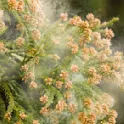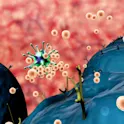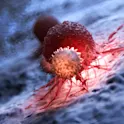Breast milk from Mennonite moms on farms better protects babies from allergies
By Mischa Dijkstra, Frontiers science writer Image credit: Richard L. Bowman / Shutterstock.com A new study is the first to compare breast milk between mothers from the older order Mennonite community who live on traditional farms versus urban women. Communities such as old order Mennonites are known to have a low prevalence of atopic diseases associated with allergies, presumably due to environmental and lifestyle factors. The results show that breast milk from Mennonite mothers is richer in neutral or beneficial bacteria, certain cytokines and fatty acids, and IgA antibodies important for defense against bacteria. Their milk may give babies a better protection against allergens in infancy and later in life. Atopic diseases, which include eczema, allergic rhinitis, asthma, and food allergy, are caused by an innate or acquired allergy to airborne particles, such as pollen, dust, mold, or animal dander, or to foodstuffs like peanut, milk, soy, shellfish, or wheat. Until the early 20th century, allergy was thought to be a rare disease. But since in the 1920s to 1930s and especially since the second half of the 20th century, the prevalence of allergies has exploded in Western societies. For example, the European Academy of Allergy and Clinical Immunology estimates […]














